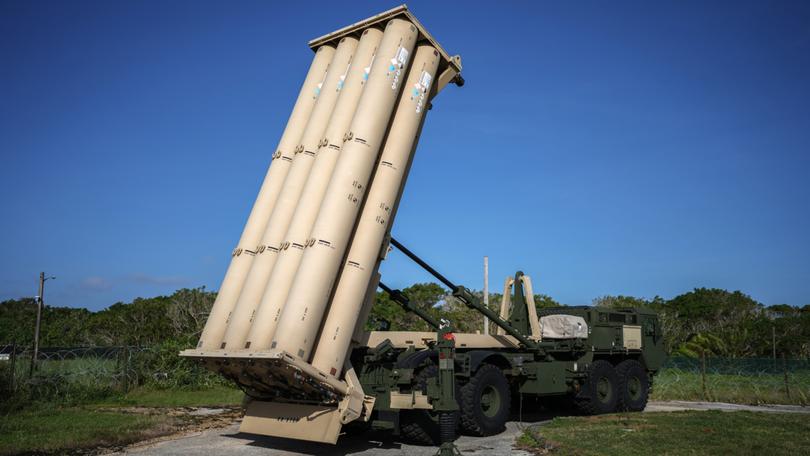US to deploy missile defence system and about 100 troops to Israel
The United States is sending an advanced missile defence system to Israel, along with troops to operate it, the Pentagon has revealed.

The United States is sending an advanced missile defence system to Israel, along with about 100 US troops to operate it, the Pentagon announced Sunday. It is the first deployment of US forces to Israel since the Hamas-led attacks there on Oct. 7, 2023.
President Joe Biden directed Defense Secretary Lloyd Austin to deploy the Terminal High Altitude Area Defense system, or THAAD, and its crew, Maj. Gen. Patrick Ryder, the Pentagon press secretary, said in a statement Sunday.
The move will put US troops operating the ground-based interceptor, which is designed to defend against ballistic missiles, closer to the widening war in the Middle East. It comes after Iran launched about 200 missiles at Israel on Oct. 1 and as Israel plans its retaliatory attack.
Sign up to The Nightly's newsletters.
Get the first look at the digital newspaper, curated daily stories and breaking headlines delivered to your inbox.
By continuing you agree to our Terms and Privacy Policy.The THAAD battery, a mobile defence system, will give the Israeli military another layer of protection to defend cities, troops and installations from short- and intermediate-range ballistic missiles like those deployed by Iran in its last attack.
When asked about it Sunday, Biden said only that he had ordered the Pentagon to deploy the system “to defend Israel.” Ryder said in his statement that the battery would “augment Israel’s integrated air defence system.”
A senior US military official said Sunday that it would take at least a week to get the new system, and the necessary troops, to Israel.
The decision announced Sunday comes as senior Pentagon officials have been debating whether the increased US military presence in the region is containing the war, as they had hoped, or inflaming it.
Several Pentagon officials have expressed concern in recent weeks that Israel has been waging an increasingly aggressive campaign against the Lebanese militia Hezbollah, Iran’s most powerful proxy, knowing that an armada of US warships and dozens of attack planes stand ready to help blunt any Iranian response.
Gen. Charles Brown, chair of the Joint Chiefs of Staff, has raised the issue in meetings at the Pentagon and at the White House, officials said. Brown has also questioned the effect of the expanded American presence in the region on overall combat “readiness,” the ability of the US military to respond quickly to conflicts, including with China and Russia.
This article originally appeared in The New York Times.
© 2024 The New York Times Company
Originally published on The New York Times
